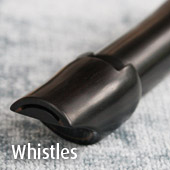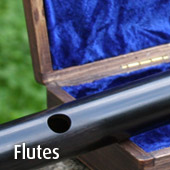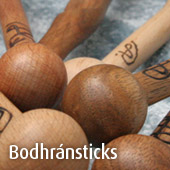
Instrument maker
Dear musicians, dear friends of my instruments!
Unfortunately, I have to take an extended break from my workshop for health reasons. I can't yet estimate exactly how long, but it will probably last until the end of 2025.
I'll get back to you as soon as I have more details. Thank you for your patience!
I am already looking forward to being able to make many people happy with my instruments again soon.
Peter
Since January 2nd 2017 all types of Rosewood (including African Blackwood) have been protected and may only be traded with a CITES document. Instruments made from these woods, already imported and certified in the EU can be traded without additional permits, but please keep the invoice to proof that you bought the timber legally.
Instruments in stock:
currently no instruments in stock
Videos:
Short views into my workshop - the development of my low whistles.
Many thanks to Lightnoise (Fabian Aschenbrenner) for the film!
- 2024 Rachel Hardy plays a Mopane Low G in the song “We Will Go Home”
- 2023 Ella Zlotos on a Rosewood Low D
Floating, The Dear Irish Boy / Whelan's Jig
- 2022 Low D Leadwood Canonic Sonata, The Monaghan Jig
- December 2020 three instruments of Mopane in different keys
low whistle in F - high whistle in D - low whistle in D
- Februar 20th 2016
Here a live video with my low F in Mopane (at the beginning of the video) me performing "Windways" at "Voices for Humanity".
Reports:
- August 2016
Presentation of my instruments at Tønder Festival in Denmark
The Austrian radio station OE1 presented me as an instrument maker in their programme Radiokolleg – "Klang aus Meisterhand". You can listen to the broadcast here:
Radio programme ORF OE1 (in German language)
My first flute repair job was quite unique. After searching for a long time, I finally found a Low-Whistle with a beautiful sound and excellent intonation. During our homeward journey, we took a short break. My daughter opened the car door in order to exit. My wonderful flute rolled out of the car and onto the street and was promptly run over by a passing car—flattened flatter than a pancake! I was horrified! It took me a while to regain my composure, but when I had done so, the technician in me came to the surface. I decided on the spot to apply my knowledge and experience as a trained tool maker and mechanical engineer, and attempt to save the tragic remains of a once-beautiful instrument. It took me an entire night of painstaking work in my shop to bring that wonderful flute back to life, but I succeeded. To this day, it remains one of my favourite instruments. As a result of this experience, I was motivated to try my hand at building my first, very own, metal Low-Whistle, which is exactly what I did.
I was unsatisfied with the first Irish Concert Flute which I purchased—unfortunately, not a very good one. The workmanship and tone quality left a lot to be desired. An additional problem was the long waiting time for quality brand flutes, which can be up to six years. This fact was a significant influence leading to my final decision to produce my own flutes. That tipped the scales for me, and I decided to produce my own flutes. I began studying old wooden flutes, and conducted a series of experiments. The result was the creation of my own flute, an instrument which had the quality I wanted and needed. I showed my instruments to some fellow musicians. They were so excited about them, that I decided to make them available to others.
My Bodhrán Sticks are designed to fit the human hand more naturally and as well to achieve greater performance accuracy.
The Bodhrán Sticks depicted on this page are examples of my standard models. However, we would be glad to modify the sticks for those of our customers who have specific needs or requests.
The timber for my instruments I procure directly from South Africa. The company Prosono is fully dedicated to nature conservation, sustainable timber harvesting and processing for the benefit of the local communities, in terms of job creation, training and socio-economic development.


